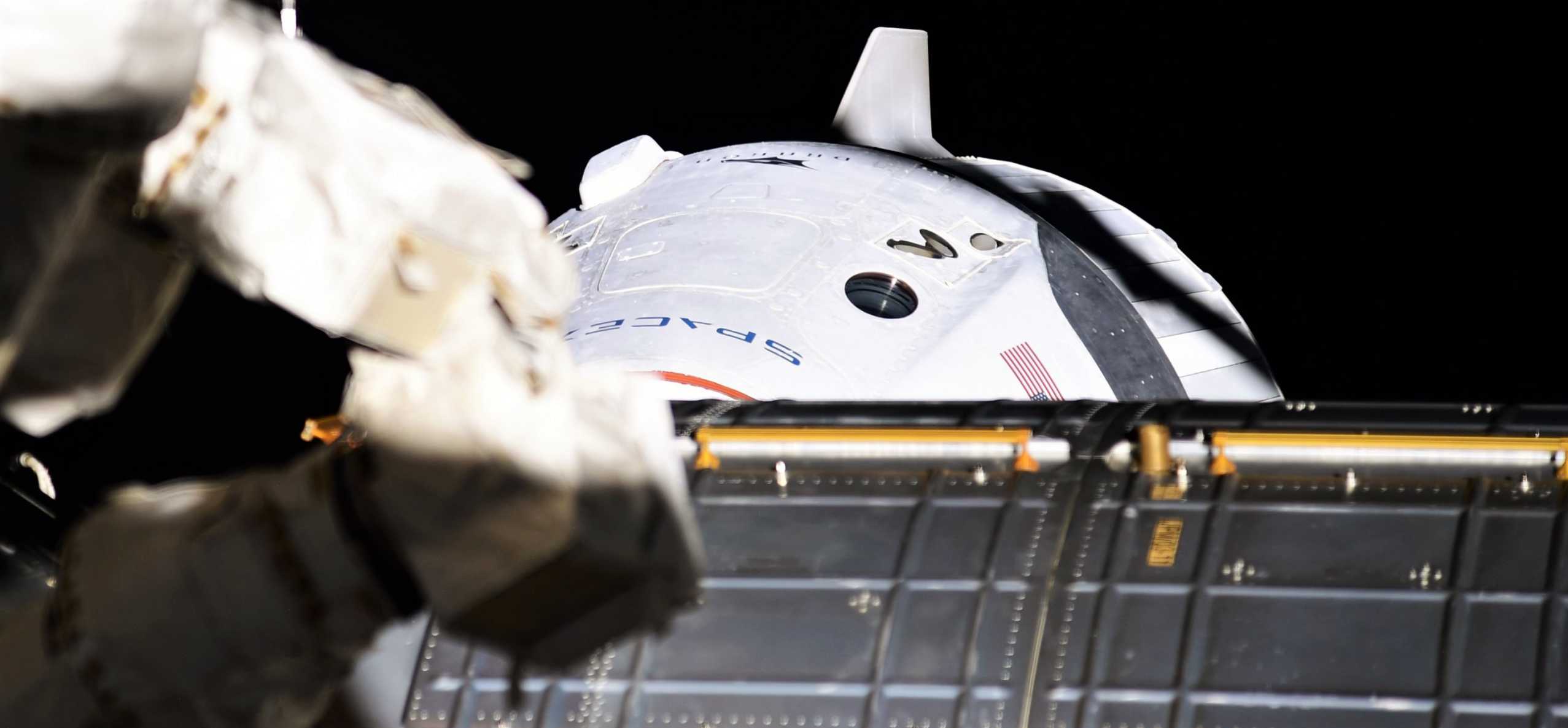
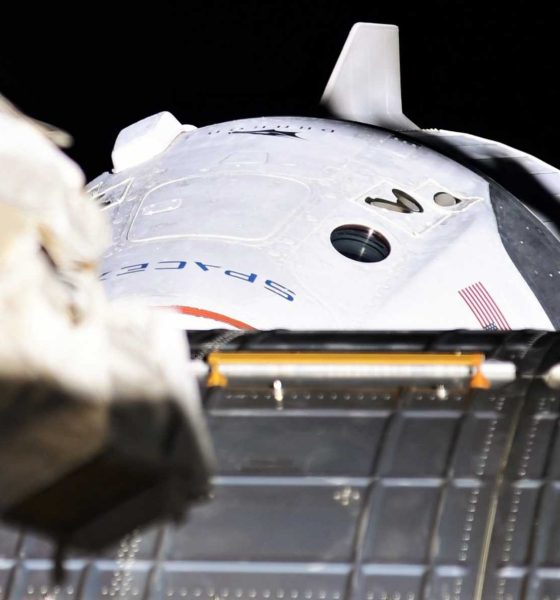
News
SpaceX Crew Dragon spaceship to bring NASA astronauts home this summer
Bob Behnken and Doug Hurley launched to the space station on May 30, for an indeterminate amount of time. Their stay on orbit depends upon a few different factors, including solar array degradation, the status of the next Crew Dragon, and landing zone weather. While Bob and Doug do not yet have a definitive return date, NASA officials have said they are looking at August as a return time frame.
The mission, known as Demo-2, is the first to fly humans from Florida since the end of the shuttle program in 2011. It’s also SpaceX’s first mission to carry astronauts. But it won’t be the last. The California-based aerospace company is gearing up for its next crewed mission. Known as Crew-1, this flight will see three NASA astronauts, and one Japanese astronaut soar to the space station inside another Crew Dragon capsule.
The two missions are interconnected. Demo-2 is the final test flight of the Crew Dragon capsule, and at the end of the mission, NASA is expected to certify the craft to regularly carry humans to and from the space station. For nearly a decade, NASA has been solely dependent upon Russia to carry its astronauts, but now, the agency will have more flexibility with flights.
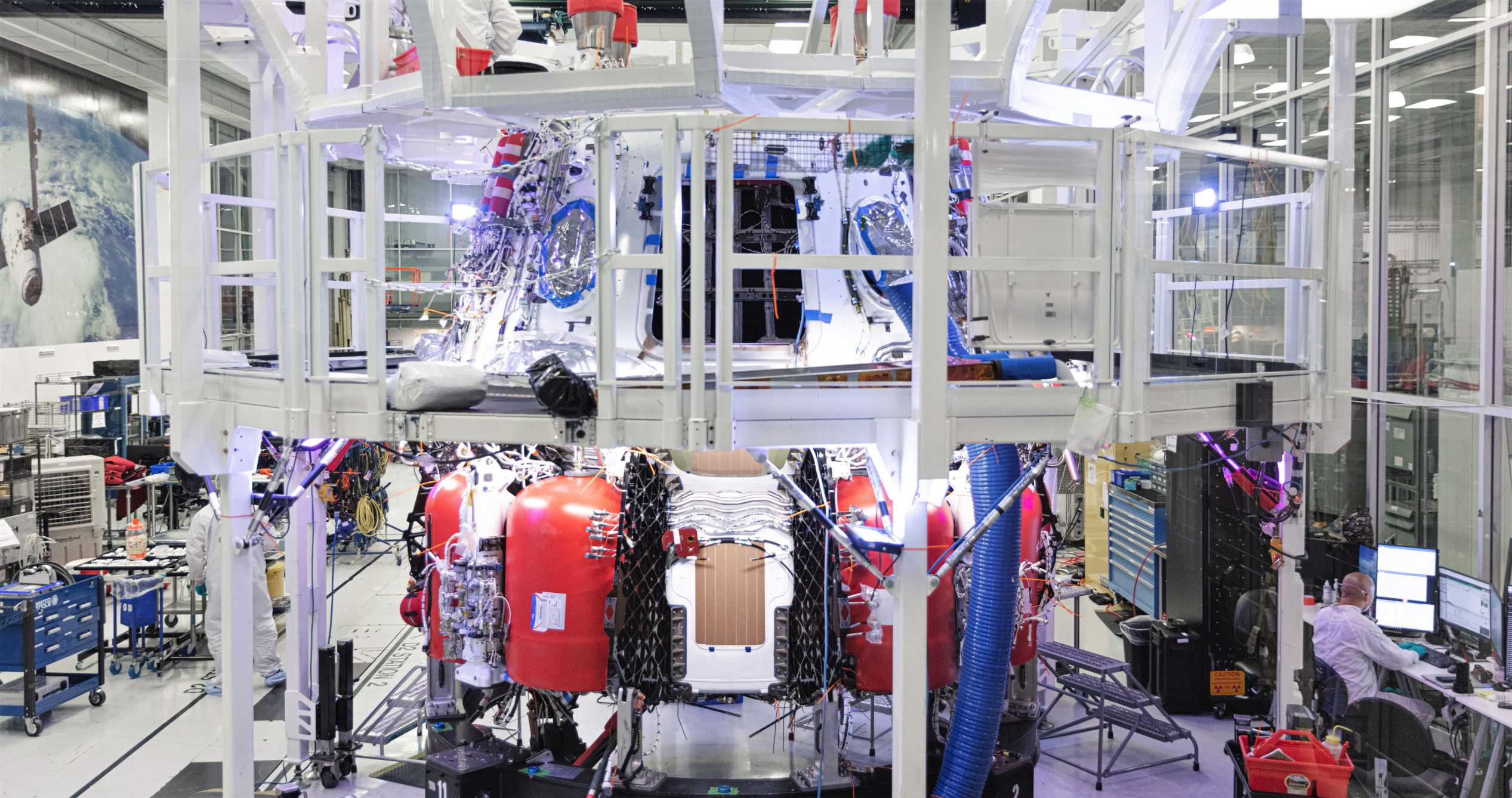
Before Demo-2 launched, NASA officials estimated that the Bob and Doug could stay on station anywhere from one to four months. The agency wanted to see how the Dragon performed on orbit before specifying the length of time the crew would remain on orbit.
“We didn’t prescribe the length of the Demo-2 mission until we got the crew on orbit and we could see the performance of the Dragon,” Ken Bowersox, acting administrator for NASA’s human spaceflight program said on Tuesday. “The Dragon is doing very well, so we think it’s reasonable for the crew to stay up there a month or two. The actual details are still being worked out.”
Bowersox explained that the mission is going well, and the spacecraft is holding up as expected. The Crew version of SpaceX’s Dragon capsule has been to the space station one other time. During its first test flight, called Demo-1. This mission launched in 2019, without people on board. The craft proved it could dock and undock itself with the space station, and even spent about a week attached to the orbital outpost.
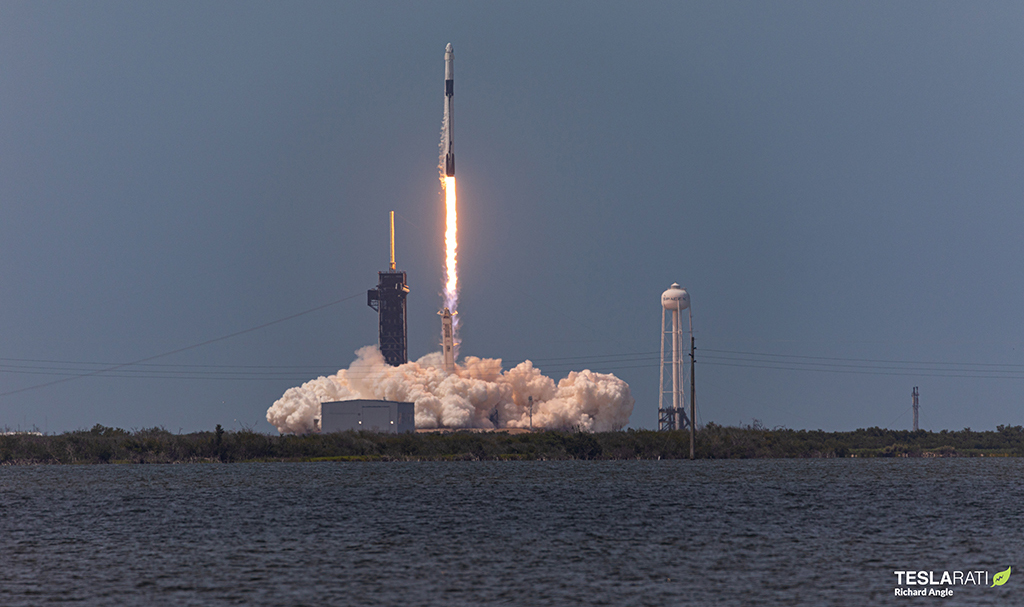
Now, NASA and SpaceX are putting the craft through its paces and seeing how well it holds up over time against the harsh environment of outer space. Some of the craft’s most sensitive electronics, namely the solar panels, have a shelf life in space. That time period is limited to 120 days, so NASA wants the crew to come home before that time.
The next batch of astronauts are expected to launch in late August or early September, if all goes according to plan. But, in order for them to launch, Bob and Doug have to come home several weeks before the planned liftoff so that the Dragon can be evaluated and certified.
To that end, NASA is looking at bringing the Demo-2 crew home in late July or early August. This will allow them to help with station maintenance, as well perform a spacewalk or two. Since April, Chris Cassidy has been the sole NASA astronauts on board, as the space station has been operating on a skeleton crew. The addition of Bob and Doug allows the crew to do more routine maintenance, as well as some research experiments.
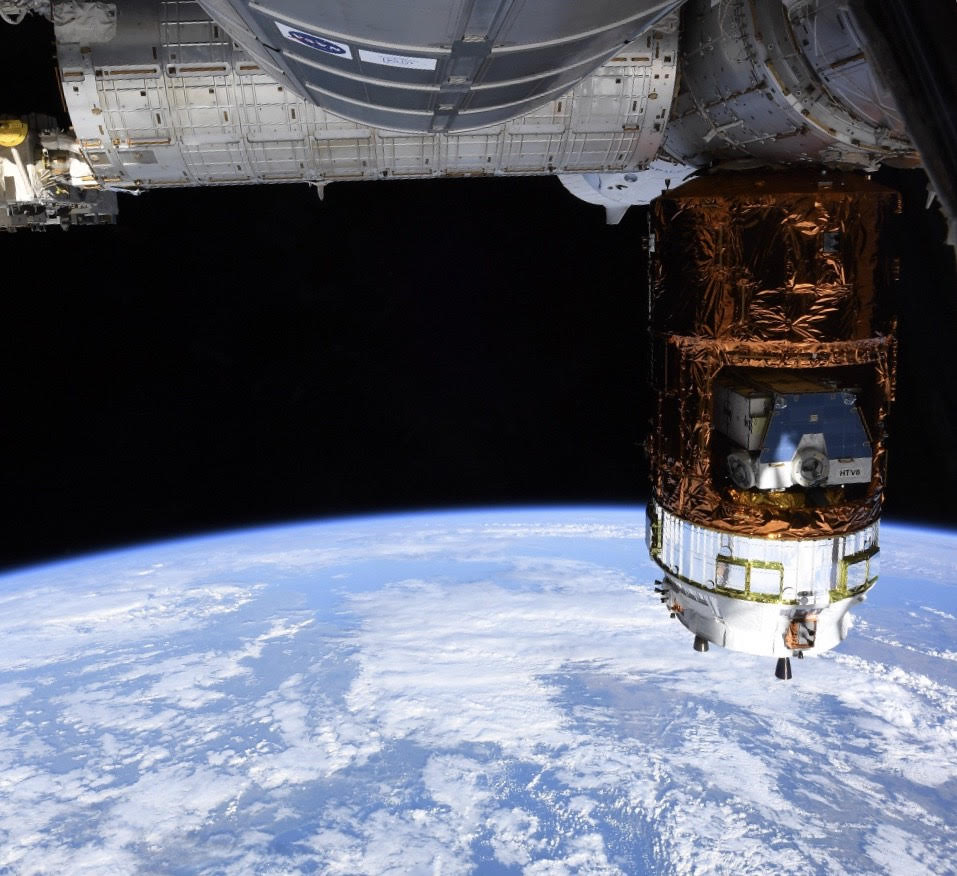
Bob Behnken is expected to perform at least two spacewalks — one in late June, followed by one in early July. Behnken will join Chris Cassidy in replacing batteries on the space station’s exterior. The batteries were delivered on a recent cargo resupply mission and will help power the space station.
While Behnken is suited up and working outside the station, Doug Hurley will operate the space station’s robotic arm, helping Behnken and Cassidy move about during their spacewalks.
The plans were brought up in a joint meeting on Tuesday of the National Academies of Sciences, Engineering and Medicine’s Space Studies Board and the Aeronautics and Space Engineering Board.
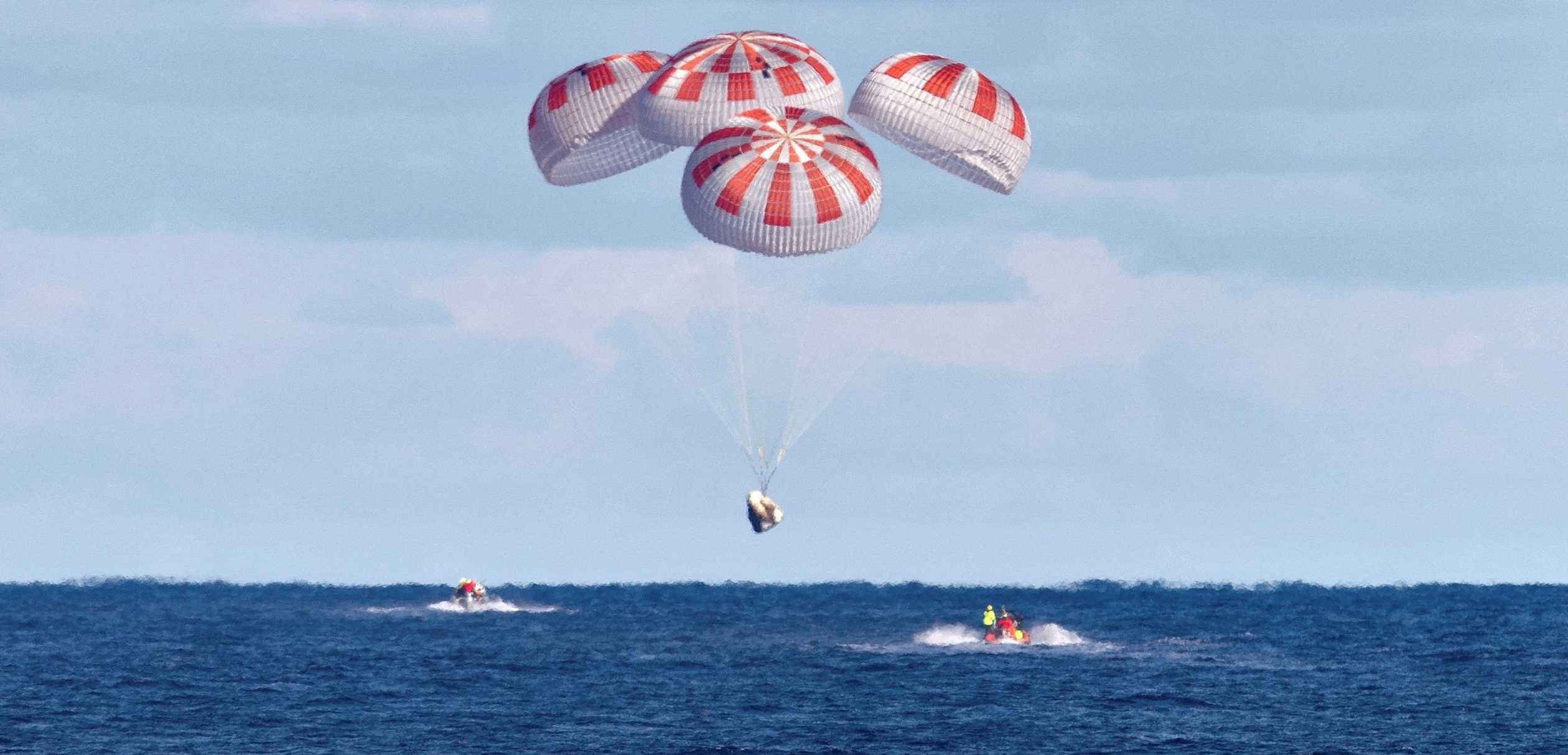
“It is very likely that by the end of July, we will have conducted some spacewalks with Chris Cassidy and Bob Behnken, replaced some batteries on the ISS, and we’ll — about two months from now — start thinking about bringing Bob and Doug home,” Bowersox said. “We’d like to get them home some time in August.”
Bowersox is a former astronaut, who flew on five shuttle missions. He recently took over as acting head of NASA’s human spaceflight division after the previous administrator, Doug Loverro, suddenly resigned. That change in leadership took place just days before Hurley and Behnken took flight. Industry sources say Loverro’s departure had to do with him breaking agency rules during a competition to procure bids for NASA’s upcoming lunar lander program.
While the timing was suspect, the Demo-2 mission was unaffected and went off without a hitch.
Check out Teslarati’s Marketplace! We offer Tesla accessories, including for the Tesla Cybertruck and Tesla Model 3.

News
Tesla ships out update that brings massive change to two big features
“This change only updates the name of certain features and text in your vehicle,” the company wrote in Release Notes for the update, “and does not change the way your features behave.”

Tesla has shipped out an update for its vehicles that was caused specifically by a California lawsuit that threatened the company’s ability to sell cars because of how it named its driver assistance suite.
Tesla shipped out Software Update 2026.2.9 starting last week; we received it already, and it only brings a few minor changes, mostly related to how things are referenced.
“This change only updates the name of certain features and text in your vehicle,” the company wrote in Release Notes for the update, “and does not change the way your features behave.”
The following changes came to Tesla vehicles in the update:
- Navigate on Autopilot has now been renamed to Navigate on Autosteer
- FSD Computer has been renamed to AI Computer
Tesla faced a 30-day sales suspension in California after the state’s Department of Motor Vehicles stated the company had to come into compliance regarding the marketing of its automated driving features.
The agency confirmed on February 18 that it had taken a “corrective action” to resolve the issue. That corrective action was renaming certain parts of its ADAS.
Tesla discontinued its standalone Autopilot offering in January and ramped up the marketing of Full Self-Driving Supervised. Tesla had said on X that the issue with naming “was a ‘consumer protection’ order about the use of the term ‘Autopilot’ in a case where not one single customer came forward to say there’s a problem.”
This was a “consumer protection” order about the use of the term “Autopilot” in a case where not one single customer came forward to say there’s a problem.
Sales in California will continue uninterrupted.
— Tesla North America (@tesla_na) December 17, 2025
It is now compliant with the wishes of the California DMV, and we’re all dealing with it now.
This was the first primary dispute over the terminology of Full Self-Driving, but it has undergone some scrutiny at the federal level, as some government officials have claimed the suite has “deceptive” names. Previous Transportation Secretary Pete Buttigieg was one of those federal-level employees who had an issue with the names “Autopilot” and “Full Self-Driving.”
Tesla sued the California DMV over the ruling last week.
News
Tesla workers push back against Giga Berlin unionization
“IG Metall did not succeed in Giga Berlin‘s works council election earlier today. The union share was reduced from nearly 40% in 2024 to 31% in 2026! This is a clear message by the Giga Berlin team towards an independent co-determination! The list called Giga United, led by the current chairwoman, Michaela Schmitz, received the most votes with more than 40%! Good news for Giga Berlin!”

Tesla workers pushed back against unionization efforts at Gigafactory Berlin, and over the past few years, there has been a dramatic decrease in interest to unionize at the German plant.
Gigafactory Berlin Plant Manager André Thierig announced on Wednesday that IG Metall, the European union group, saw its share reduce from 40 to 31 percent in 2026 as employees eligible to vote on the issue. Instead, the Giga Berlin team, known as Giga United, received the most votes with more than 40 percent.
BREAKING! 🚨
IG Metall did not succeed in Giga Berlin‘s works council election earlier today. The union share was reduced from nearly 40% in 2024 to 31% in 2026!
This is a clear message by theGiga Berlin team towards an independent co-determination!
The list called Giga…
— André Thierig (@AndrThie) March 4, 2026
Thierig gave specific details in a post on X:
“IG Metall did not succeed in Giga Berlin‘s works council election earlier today. The union share was reduced from nearly 40% in 2024 to 31% in 2026! This is a clear message by the Giga Berlin team towards an independent co-determination! The list called Giga United, led by the current chairwoman, Michaela Schmitz, received the most votes with more than 40%! Good news for Giga Berlin!”
There were over 10,700 total employees who were eligible to vote, with 87 percent of them turning out to cast what they wanted. There were three key outcomes: Giga United, IG Metall, and other notable groups, with the most popular being the Polish Initiative.
The 37-seat council remains dominated by non-unionized representatives, preserving Giga Berlin as Germany’s only major auto plant without a collective bargaining agreement.
Thierig and Tesla framed the outcome as employee support for an “independent, flexible, and unbureaucratic” future, enabling acceleration on projects like potential expansions or new models. IG Metall expressed disappointment, accusing management of intimidation tactics and an “unfair” campaign.
The first election of this nature happened back in 2022. In 2024, IG Metall emerged as the largest single faction with 39.4 percent, but non-union lists coalesced for a majority.
But this year was different. There was some extra tension at Giga Berlin this year, as just two weeks ago, an IG Metall rep was accused by Tesla of secretly recording a council meeting. The group countersued for defamation.
Tesla Giga Berlin plant manager faces defamation probe after IG Metall union complaint
This result from the 2026 vote reinforced Tesla’s model of direct employee-management alignment over traditional German union structures, amid ongoing debates about working conditions. IG Metall views it as a setback but continues advocacy. Tesla sees it as validation of its approach in a competitive EV market.
This outcome may influence future labor dynamics at Giga Berlin, including any revival of expansion plans or product lines, which Musk has talked about recently.
News
SpaceX President Gwynne Shotwell details xAI power pledge at White House event
The commitment was announced during an event with United States President Donald Trump.

SpaceX President Gwynne Shotwell stated that xAI will develop 1.2 gigawatts of power at its Memphis-area AI supercomputer site as part of the White House’s new “Ratepayer Protection Pledge.”
The commitment was announced during an event with United States President Donald Trump.
During the White House event, Shotwell stated that xAI’s AI data center near Memphis would include a major energy installation designed to support the facility’s power needs.
“As you know, xAI builds huge supercomputers and data centers and we build them fast. Currently, we’re building one on the Tennessee-Mississippi state line. As part of today’s commitment, we will take extensive additional steps to continue to reduce the costs of electricity for our neighbors…
“xAI will therefore commit to develop 1.2 GW of power as our supercomputer’s primary power source. That will be for every additional data center as well. We will expand what is already the largest global Megapack power installation in the world,” Shotwell said.
She added that the system would provide significant backup power capacity.
“The installation will provide enough backup power to power the city of Memphis, and more than sufficient energy to power the town of Southaven, Mississippi where the data center resides. We will build new substations and invest in electrical infrastructure to provide stability to the area’s grid.”
Shotwell also noted that xAI will be supporting the area’s water supply as well.
“We haven’t talked about it yet, but this is actually quite important. We will build state-of-the-art water recycling plants that will protect approximately 4.7 billion gallons of water from the Memphis aquifer each year. And we will employ thousands of American workers from around the city of Memphis on both sides of the TN-MS border,” she noted.
The Ratepayer Protection Pledge was introduced as part of the federal government’s effort to address concerns about rising electricity costs tied to large AI data centers, as noted in an Insider report. Under the agreement, companies developing major AI infrastructure projects committed to covering their own power generation needs and avoiding additional costs for local ratepayers.








